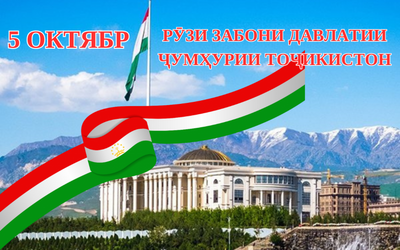Articles

State Language Day in Tajikistan
Language is one of the fundamental pillars of national identity and plays a decisive role in preserving the cultural heritage and continuity of any nation. In the Republic of Tajikistan, October 5th is officially recognized and celebrated as State Language Day, a date that reflects the nation’s deep respect for its mother tongue and its commitment to protecting, promoting, and modernizing it.
The Tajik language, as the state language, serves not only as a tool for daily communication but also as a vital link connecting the historical, cultural, and intellectual legacy of the Tajik people across generations. As the founder of national unity leader of the nation, president of the Republic of Tajikistan, his excellency Emomali Rahmon has consistently emphasized, the state language is a core component of the nation's existence and plays a central role in shaping and strengthening national consciousness, governance, education, and culture.
In the context of rapid globalization and technological advancement, linguistic competence particularly in foreign languages has become a strategic necessity. Mastery of languages such as Russian and English allows Tajik citizens to engage more actively in global academic, economic, and diplomatic exchanges. However, this growing need to learn foreign languages does not diminish the value of the state language. Rather, it reinforces the importance of multilingualism, where the mother tongue remains a stable foundation upon which additional linguistic and cultural competencies are built.
State Language Day thus serves a dual purpose. It is both a celebration of national identity and an opportunity to reflect on the evolving role of language in a globalized world. It reminds us that language is not merely a communication tool, but also a vehicle for national unity, intercultural dialogue, and sustainable development.
The younger generation, in particular, bears a responsibility to uphold and enrich the state language while also equipping themselves with the foreign language skills necessary to contribute to national progress. In doing so, they help position Tajikistan as a culturally rich, forward-looking, and internationally connected nation.
In conclusion, State Language Day stands not only as a tribute to the Tajik language but also as a symbol of the country’s aspirations to preserve its heritage while actively participating in global civilization. It reinforces the idea that a strong national identity, rooted in language and culture, is entirely compatible with openness to the wider world.
Mahmadalizoda Nilufar,
assistant of the Department of
foreign language

